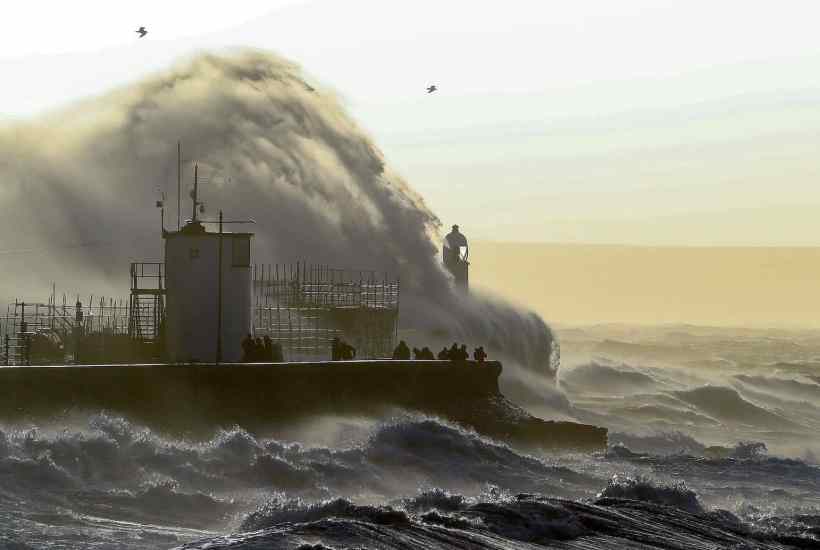I sat tight and braced myself for the worst this morning — not high winds but for the Today programme to blame storm Eunice on climate change. Sure enough, at a quarter past eight, it didn’t disappoint. While a report acknowledged that it was not possible to blame specific weather events on climate change, Baroness Brown, who sits on the government’s climate change committee, was hauled on the show to explore the link between ‘extreme weather’ and climate change. She suggested that the Intergovernmental Panel on Climate Change (IPCC) would be producing a very frightening report on it soon.
The use of the generalised term ‘extreme weather’ — i.e. without including the words ‘wind’ or ‘storm’ — was interesting because on these particular forms of extreme weather the evidence presented by the IPCC points in exactly the opposite direction: the latitudes in which Britain sits are experiencing fewer intense storms and indeed lighter winds generally:
Over the northern hemisphere there is high agreement among reanalyses that the number of cyclones with low central pressures (less than 970 hPa) has decreased in summer and winter during the period 1979-2010.
It cites a study that found that the number of storms over the Arctic and North Atlantic with a central pressure of less than 960 hPa rose between 1979 and 1990 but fell in the two decades following. It doesn’t offer any data on deep storms in the years since 2010, but it does conclude — citing 148 studies on the subject — that there is a general fall in wind speeds over land in the northern hemisphere up to 70 degrees north (Britain spans between 50 and 60 degrees north). You can read it all for yourself in chapter 11 of the IPCC report.
Yet the idea that Britain is being battered by ever-greater storms as a result of man-made climate change seems to have become pervasive. Earlier in the week, a BBC report quoted a man from the Woodland Trust who asserted, without being challenged: ‘Climate change means that storms normally only seen in north-east Scotland are now hitting Northumberland and right across to Cumbria.’ Well, actually no. The evidence quoted by the IPCC suggests the opposite: storm tracks in both northern and southern hemispheres appear to be shifting polewards — so Scotland’s storms are moving northwards rather than southwards.
The BBC, which prides itself on its climate coverage, and which has all but banned sceptical views on the subject from its airwaves, has at least this morning tried to put the record straight on its website. Its environment editor is there quoting the Met Office’s latest State of the Climate Report: ‘There are no compelling trends in maximum gust speeds recorded by the UK wind network in the last five decades, particularly bearing in mind the year-to-year and decadal variations and relatively short length of this time series.’
You can judge for yourself the bit about ‘no compelling trend’. This is what the Met Office’s data on the frequency of maximum gust speeds shows. So, no, Storm Eunice is not a product of man-made climate change. It is not even part of a trend towards more intense storms; but a mere blip in a trend that seems to be going in the other direction.
Got something to add? Join the discussion and comment below.
Get 10 issues for just $10
Subscribe to The Spectator Australia today for the next 10 magazine issues, plus full online access, for just $10.





















Comments
Don't miss out
Join the conversation with other Spectator Australia readers. Subscribe to leave a comment.
SUBSCRIBEAlready a subscriber? Log in